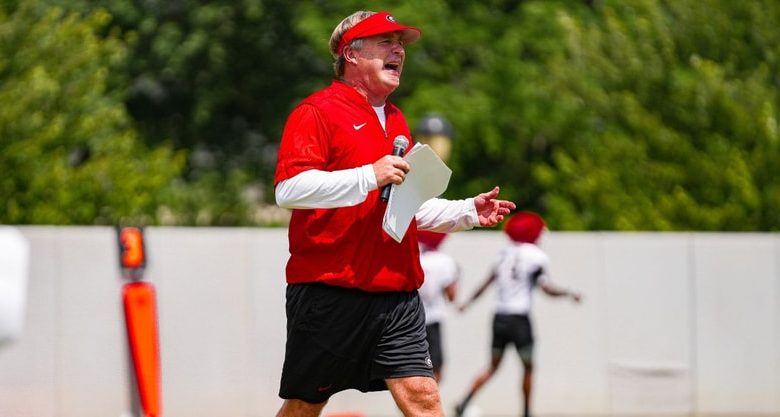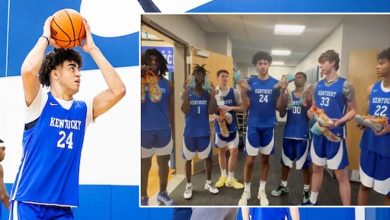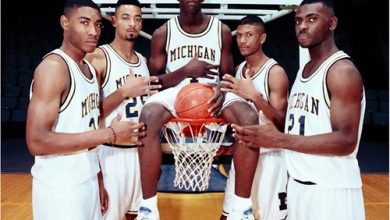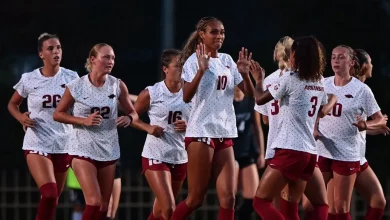Kirby Smart relies on a dedicated mental coach to train the mind, enhancing focus, resilience, and mental toughness crucial for Georgia football’s success.

In the high-stakes world of college football, physical talent and strategic acumen are essential, but they are not enough to guarantee victory. Over the past decade, a new frontier has emerged in athletic excellence: mental conditioning. Recognizing that mental resilience and focus are as critical as physical skill, head coach Kirby Smart of the Georgia Bulldogs has integrated dedicated mental coaching into his team’s development program.
This approach reflects an evolving understanding of sports psychology’s role in athlete performance, emphasizing that cultivating mental toughness, resilience, and focus can be the differentiators between good teams and great champions. This comprehensive analysis explores how Kirby Smart leverages mental coaching, the significance of psychological training in college football, its impact on Georgia’s success, and the broader implications for sports performance.
1. The Evolution of Sports Psychology in College Football
From Physical to Mental Preparation
Traditionally, athletes focused primarily on physical training, skill drills, and tactical strategies. However, as competitive levels intensified, teams recognized that mental factors—confidence, focus, stress management, and resilience—significantly influence performance.
In the NFL and top college programs, mental conditioning has become an integral part of athlete development. Coaches and sports psychologists work together to develop mental skills that help athletes stay calm under pressure, recover from setbacks, and maintain concentration during critical moments.
The Role of Mental Coaches
A mental coach or sports psychologist works to enhance athletes’ psychological resilience, help them visualize success, develop routines, and manage anxiety. Unlike coaching that focuses solely on game tactics, mental coaching aims to optimize the athlete’s internal state, fostering mental toughness and emotional stability.
2. Kirby Smart’s Philosophy and Approach
Leadership and Vision
Since taking over as head coach at Georgia in 2016, Kirby Smart has emphasized a holistic approach to team building. Recognizing that mental strength is vital to executing complex schemes and overcoming adversity, he has adopted a proactive stance on mental conditioning.
Hiring a Dedicated Mental Coach
Smart’s commitment is exemplified by his hiring of a dedicated mental coach—an expert specializing in sports psychology—and integrating this role into the team’s daily routine. This coach works closely with players to build mental resilience, improve focus, and develop routines that prepare them mentally for game-day pressures.
Integrating Mental Training into Daily Practices
The mental coach’s involvement is not limited to occasional sessions; it is woven into the fabric of the team’s culture. Players participate in visualization exercises, mindfulness routines, and mental resilience workshops. These activities aim to simulate high-pressure situations, helping athletes develop confidence and composure.
3. The Significance of Mental Toughness in College Football
Handling Pressure and Expectations
College football players face enormous pressure—media scrutiny, high expectations, and intense competition. Mental toughness enables athletes to stay focused amid distractions and maintain performance under stress.
Overcoming Adversity and Setbacks
Injuries, losses, or mistakes during a game test resilience. A mentally tough athlete views setbacks as opportunities for growth, maintaining confidence and perseverance.
Consistency and Focus
Football demands sustained concentration through long drives, complex plays, and unpredictable situations. Mental training sharpens focus, reducing errors, and improving decision-making.
Clutch Performance
In critical moments—such as the final minutes of a close game—players must perform under immense pressure. Mental conditioning helps athletes stay calm, confident, and execute plays effectively.
4. The Impact of Mental Coaching on Georgia’s Success
Building a Championship Culture
Georgia’s recent success, including national championships, can be partly attributed to a strong mental foundation. Players are trained to handle the mental demands of high-stakes games, maintaining composure and executing under pressure.
Developing Leadership and Team Cohesion
Mental coaching fosters leadership qualities and team cohesion. Players learn to support each other psychologically, creating a resilient team environment.
Handling Expectations and Media Scrutiny
Georgia faces intense media scrutiny, especially during championship runs. Mental coaching equips players to handle external pressures, focus on their performance, and stay united.
Enhanced Performance Metrics
Players trained in mental techniques often demonstrate improved performance metrics—fewer mental lapses, better focus, and higher confidence levels—contributing to overall team success.
5. The Specific Techniques Used in Mental Coaching
Visualization and Mental Rehearsal
Players visualize successful plays and scenarios, preparing their minds for real-game situations. This mental rehearsal enhances confidence and reduces anxiety.
Mindfulness and Stress Reduction
Practices like mindfulness meditation help players stay present, reduce stress, and improve focus during high-pressure moments.
Routine Development
Establishing pre-game routines or rituals helps athletes enter a focused, confident state, minimizing distractions.
Positive Self-Talk
Training athletes to replace negative thoughts with positive affirmations enhances self-belief and resilience.
Goal Setting and Motivation
Mental coaches assist players in setting achievable goals, fostering intrinsic motivation and a growth mindset.
6. Case Examples of Mental Coaching in Action
While specific details about Georgia’s mental coaching programs are proprietary, there are notable examples from college and professional sports:
- Tom Brady’s Mental Preparation: The NFL legend emphasizes visualization, routine, and mental resilience, attributing part of his success to mental discipline.
- The U.S. Olympic Teams: Many Olympic athletes incorporate sports psychologists to prepare mentally for competitions, often citing mental training as key to their success.
- College Football Programs: Programs like Clemson and Alabama have integrated sports psychologists to enhance athlete focus and resilience.
Georgia’s program reflects these trends, with Kirby Smart recognizing that mental toughness can be the difference-maker in close games and championship runs.
7. Broader Implications for Athlete Development
Creating a Culture of Mental Strength
By prioritizing mental training, Georgia cultivates a resilient culture that values psychological well-being alongside physical excellence.
Reducing Burnout and Anxiety
Mental coaching supports athlete mental health, helping prevent burnout and anxiety related to the pressures of college sports.
Long-Term Benefits
Skills developed through mental coaching—such as stress management, focus, and resilience—benefit athletes beyond their playing careers, fostering lifelong mental toughness.
8. Challenges and Criticisms
Stigma and Misunderstanding
Some athletes or coaches may view mental coaching as a sign of weakness, though modern understanding emphasizes its importance.
Resource Allocation
Implementing comprehensive mental training requires investment in qualified professionals, which may be challenging for some programs.
Individual Variability
Not all athletes respond equally to mental techniques; personalized approaches are necessary for effectiveness.
9. Future Directions in Sports Psychology and College Football
Integration of Technology
Emerging tools like virtual reality and biofeedback devices are enhancing mental training programs.
Data-Driven Approaches
Tracking psychological metrics can help tailor mental programs to individual needs.
Expanding Access and Education
Increasing awareness about the importance of mental health in sports promotes broader acceptance and implementation.
Kirby Smart’s emphasis on mental coaching underscores a fundamental shift in athletic training—recognizing that the mind is as vital as the body. By leveraging a dedicated mental coach, Georgia football not only enhances individual and team performance but also cultivates a resilient, focused, and mentally tough squad capable of overcoming adversity and excelling at the highest levels.
This approach exemplifies modern sports philosophy, where success is built on a foundation that integrates physical prowess with psychological strength. As college football continues to evolve, the role of mental coaching will likely become even more central, shaping the champions of tomorrow both on and off the field.









